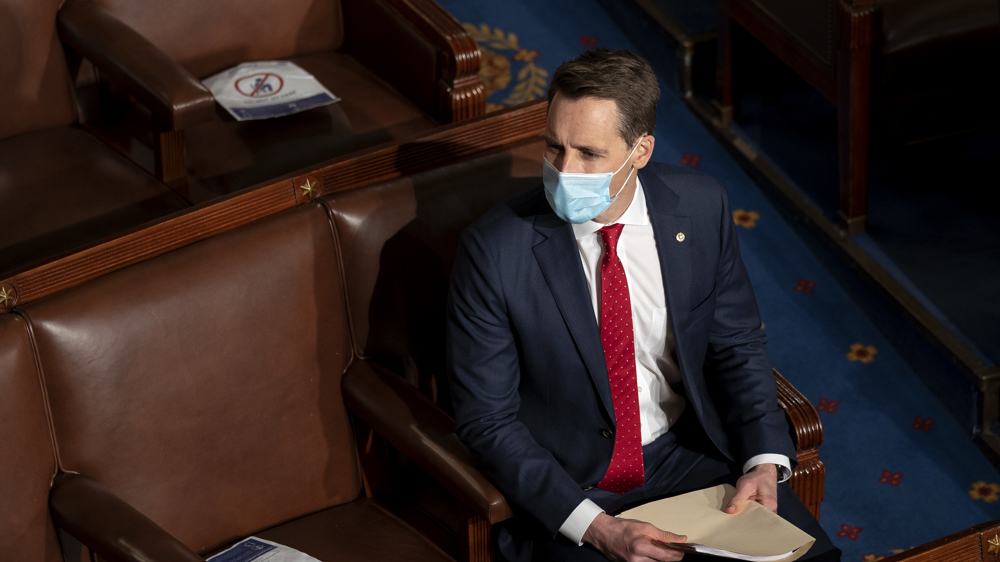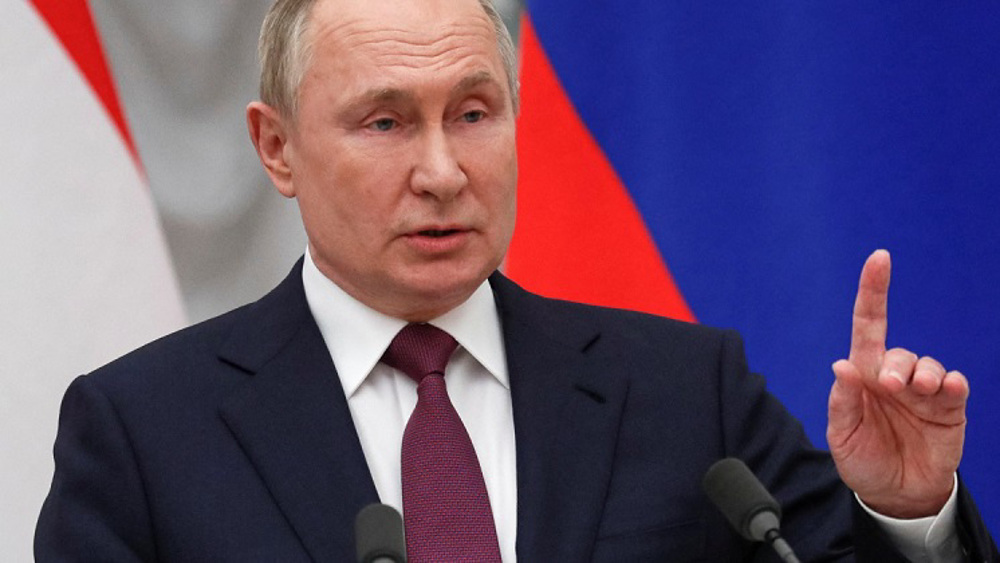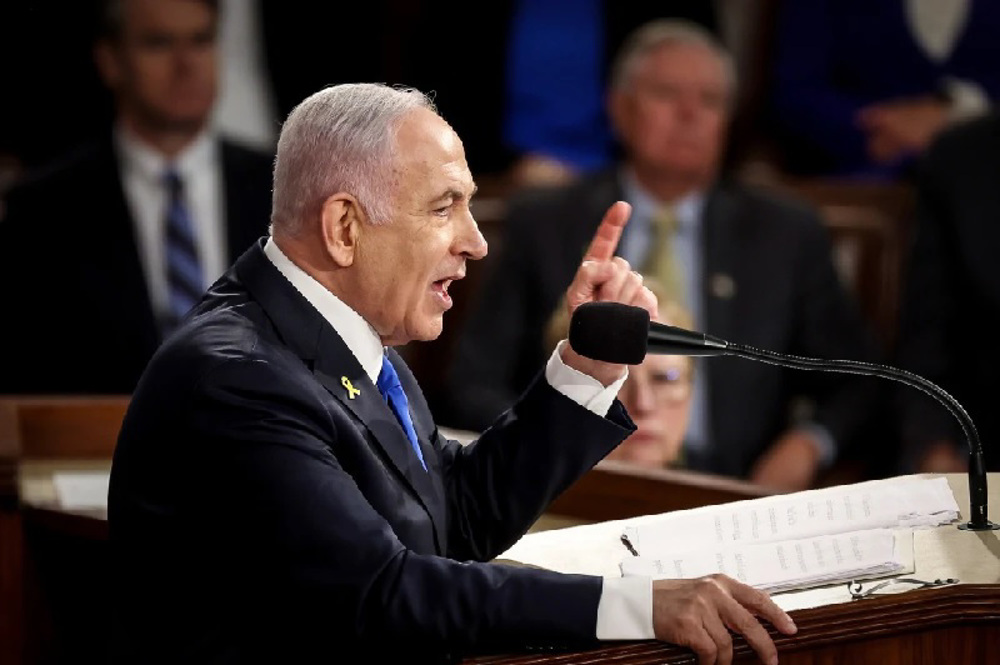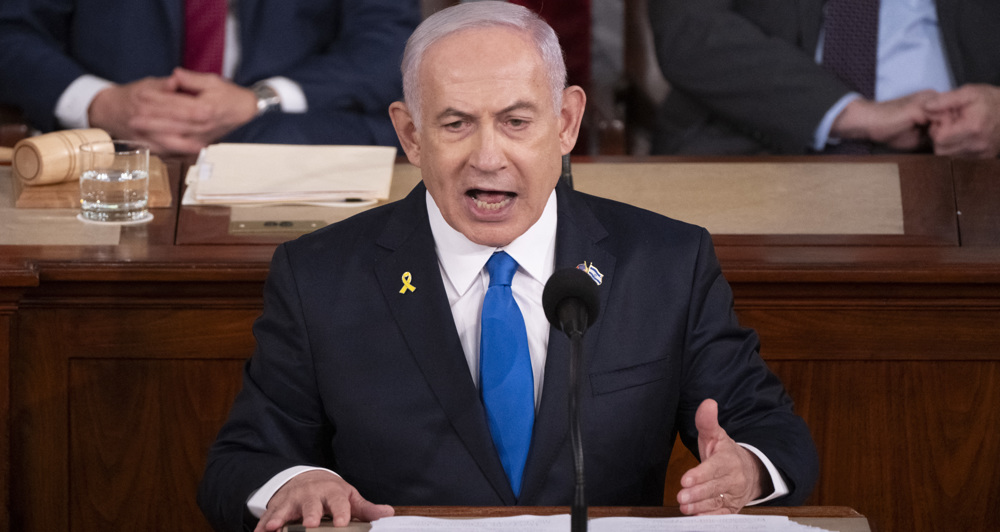White House: Republican call for deconfliction in Ukraine is 'parroting' of Russian propaganda
The White House has accused Republican Senator Josh Hawley and other conservative GOP lawmakers of "parroting Russian talking points" amid heightened tensions between Russia and the United States over the Pentagon’s announcement of deploying thousands of more troops to Eastern Europe.
Senator Hawley and some others have called on the Biden administration to abandon support for Ukraine's eventual admission to the North Atlantic Treaty Organization (NATO), arguing it would not be in American interests to be bound to defend Ukraine militarily.
"If you are digesting Russian misinformation and parroting Russian talking points, you are not aligned with longstanding bipartisan American values, which is to stand up for the sovereignty of countries like Ukraine, but others," Psaki said at a press briefing in response to a question about it.
"Their right to choose their own alliances, and also to stand against, very clearly, the efforts, or attempts or potential attempts by any country to invade and take territory of another country," she continued. "That applies to Sen. Hawley, but it also applies to others who may be parroting the talking points of Russian propagandist leaders."
Senator Hawley is one of a growing number of conservatives who have grown skeptical of backing Ukraine militarily in any conflict with Russia.
This comes in an environment of massively heightened tensions, an intensive Washington’s anti-Russian propaganda campaign, and deployment of forces and equipment throughout most of the former Warsaw Pact nations and three former Soviet republics that have joined NATO, with at least two others (Georgia and Ukraine) not yet admitted as formal members but who are involved in military cooperation, including hosting military assets, with the US and NATO.
On Wednesday, the US Defense Department said it was deploying about 3,000 more troops to Eastern Europe. The US military has already placed 8,500 troops on heightened alert to prepare for deployment in Eastern Europe and bolster NATO’s presence in the region.
Also, the US State Department has approved shipments of US-made missiles and other weapons from NATO allies Lithuania, Latvia, and Estonia to Ukraine.
The United States claims that Russia has been deploying thousands of troops on the border with Ukraine to attack the country. Moscow has rejected the allegations and said the military build-up is defensive.
Don’t use 'imminent' to describe 'Russian invasion'
Jen Psaki also told reporters Wednesday that US officials would no longer call a possible Russian invasion of Ukraine “imminent” because it implies that Russian President Vladimir Putin has made up his mind on Ukraine.
“We stopped using it because I think it sent a message that we weren’t intending to send, which was that we knew that President Putin had made a decision,” Psaki said.
Psaki noted that the “vast majority” of times she had talked about an invasion she has said Putin “could invade at any time.”
“That’s true,” Psaki said. “We still don’t know that he's made a decision.”
Psaki last week called a potential Russian invasion “imminent.”
Ukrainian leaders have slammed the Biden administration’s rhetoric against Russia, saying that Washington was stoking panic and harming their country’s economy.
Linda Thomas-Greenfield, the US ambassador to the United Nations, said in an interview Tuesday that officials were not saying that a Russian invasion of Ukraine is imminent.
“We're still pursuing a diplomatic solution to give the Russians an off-ramp. Our hope is that this will work and that Putin will understand that war and confrontation is not the path that he wants to follow, but he wants to take a path at diplomacy,” Thomas-Greenfield said.
“We're giving them an opportunity to discuss their security concerns, Europe's security concerns and certainly Ukraine's security concerns. So we'll keep working on that,” she said.
Palestinian resistance fighters hit Israeli Merkava 4 tanks
VIDEO | UK police brutal assault on Muslim family sparks outrage, protests
Hamas: Death of leader in Israeli jail amounts to murder
EU sends €1.5 billion to Ukraine from frozen Russian assets
VIDEO | Millions of Yemenis rally for Gaza, call for more anti-Israel operations
UN chief calls for Olympic truce as games begin in Paris
Paris Olympics begin as sports world reeling from loss of 400 Palestinian athletes in Gaza war
Iran warns ‘sworn enemies’, says sidekicks of US, Israel ‘displaced’ with bloody hands











 This makes it easy to access the Press TV website
This makes it easy to access the Press TV website